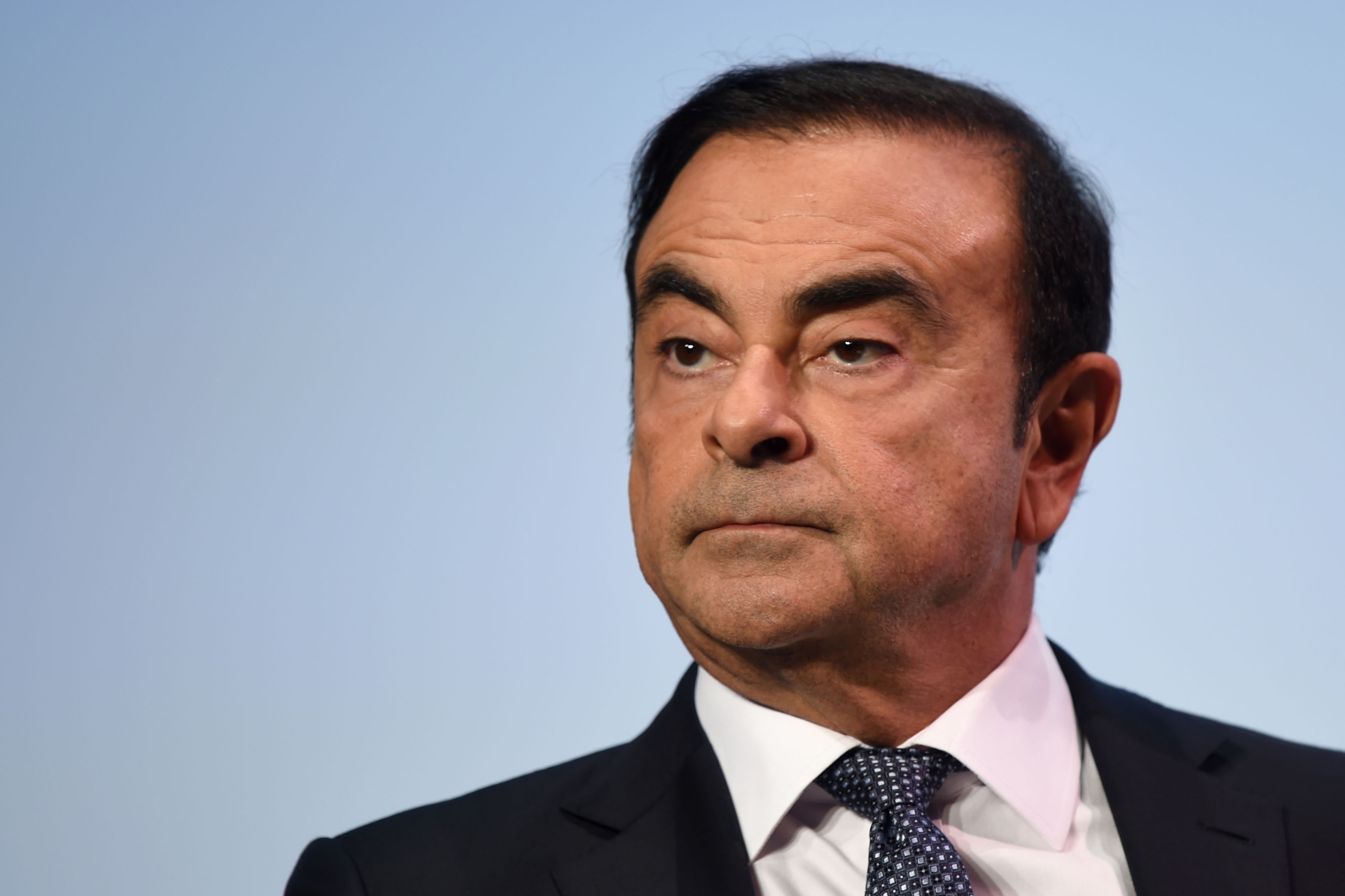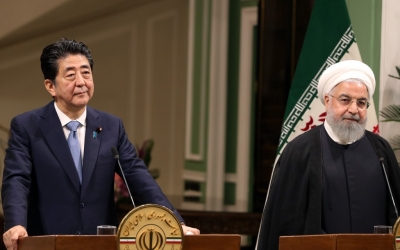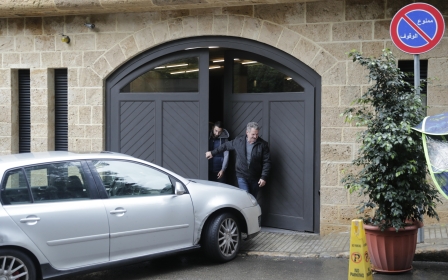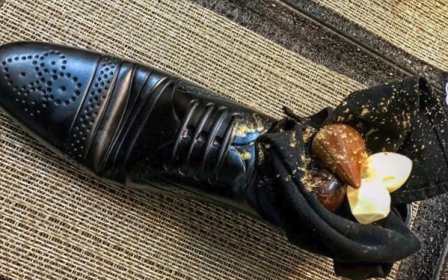Carlos Ghosn: Interpol issues Lebanon arrest warrant for fugitive Nissan boss

Lebanon received an Interpol arrest warrant for ousted Nissan boss Carlos Ghosn on Thursday, just days after the fugitive businessman arrived after fleeing Japan through Turkey with the help of a private security company.
The request, an Interpol red notice that calls on authorities to arrest a wanted person, was received by Lebanon's internal security forces and has yet to be referred to the judiciary, a source told Reuters.
The warrant comes as Turkey detained seven people for questioning over how fugitive businessman Ghosn was able to transit through Istanbul en route to Lebanon, two Turkish officials told Middle East Eye on Thursday.
The Financial Times has also reported that the Lebanese government had been trying to secure Ghosn's return to the country since October, but Beirut officials have denied that they were involved in his escape plans, saying the timing was coincidental.
The 65-year-old former Nissan chairman made his dramatic escape earlier this week, explaining after he arrived in Lebanon that he wouldn't be "held hostage" for an upcoming trial in a "rigged Japanese justice system".
New MEE newsletter: Jerusalem Dispatch
Sign up to get the latest insights and analysis on Israel-Palestine, alongside Turkey Unpacked and other MEE newsletters
Who is Carlos Ghosn?
+ Show - HideFrom the first executive to lead two Fortune 500 companies simultaneously to a fugitive fleeing Japan, here’s a bit of background on Carlos Ghosn:
Ghosn, 65, whose last name rhymes with "stone", was born in Brazil but moved to Beirut when he was six years old. He has maintained close ties with Lebanon where he owns a mansion and a stake in a vineyard. Ghosn is a popular figure in the country, seen by some as a prime example of Lebanon’s entrepreneurial genius, even appearing on one of the country’s postage stamps. When he was first arrested in Japan over financial misconduct charges in 2018, billboards saying “We are all Carlos Ghosn” were erected around Beirut.
Ghosn was educated at some of France’s most prestigious schools. He started working at the French, family-owned tyre manufacturer Michelin in 1978, eventually working his way from managing a plant to becoming the chief executive of the company’s North American operations where he oversaw restructuring after Michelin bought out Uniroyal-Goodrich.
It wouldn’t be his first restructuring. After he moved from Michelin to French auto manufacturer Renault in 1996, Ghosn earned the nickname "Le Cost Killer" for the overhaul of the company’s South America division which he returned to profitability – but the name annoys him. “It’s sexy, there’s blood in it, there’s meanness,” he told the Financial Time’s Roula Khalaf in 2018. “But everybody starts by being Le Cost Killer. If a revival plan is only about cost-cutting, it will last two years. Revival is when after 15 years the company is still on the right track.”
In 1999, after Renault took a 43 percent stake in failing Japanese automaker Nissan, Ghosn – then a vice president at Renault – was parachuted into Tokyo to restructure Nissan which was then $35bn in debt. Fun fact: when Ghosn first headed east, contacts advised him to rent a house and not buy one because he was largely expected to fail. But he ended up succeeding and inspiring a manga comic book about his life. Along the way, he became, at least according to a poll, the man most Japanese women wanted to marry.
Before he was arrested in November 2018, Ghosn was planning on retiring soon, weary from all of the travelling involved in his job, the New York Times has reported. Shortly before he flew from Beirut to Tokyo that day, he texted his four children on a What’s App group called "Game of Ghosns" after his favourite TV show, Games of Thrones, reportedly telling them: ‘On my way to Tokyo! Love you guys!'”
Ghosn faces four charges, including hiding income and enriching himself through payments to car dealerships in the Middle East. He has denied the charges.
After Ghosn's arrival in Beirut, he met with Lebanese President Michel Aoun and thanked him for the support extended to him and his wife, Carole, while he was detained, Reuters has reported.
Those detained in Turkey on Thursday include four pilots, a manager for a cargo firm and two workers for a ground servicing company at Ataturk Airport where Ghosn landed, the officials said.
In a separate case, three Lebanese lawyers filed a complaint against Ghosn with the Lebanese Public Prosecutor's Office on Thursday, accusing the former executive of violating Lebanese law by visiting Israel to sign contracts and attend conferences. Lebanon prohibits any support of the neighbouring country.
Escape from Japan
Sources close to Ghosn told Reuters that he had decided to leave Japan after learning that his trial was delayed until April 2021 and also because he had not been allowed to speak with his wife.
Ghosn hired a team of private security operatives, scattered across several countries, who helped him escape, a source close to the family told reporters. The exact details of the escape remain unclear.
It is believed that he took a private jet from Kansai Airport in Osaka on 29 December for Istanbul. According to the Turkish daily newspaper Hurriyet, the plane landed at 5.30am local time on 30 December at Ataturk Airport, at which point two people registered their entrance into the country.
Turkish customs officials, however, have no record of Ghosn's entrance to or exit from the airport.
A second plane left for Beirut later that day from the same hangar in which the plane from Japan had parked, according to Hurriyet.
Ghosn holds French, Brazilian and Lebanese citizenship, but had been forced to surrender his passports in Japan after his arrest and all three remained in his lawyer's possession, the attorney has told reporters.
Lebanese officials have said that Ghosn entered legally with a French passport and Lebanese ID. Last week, a Japanese broadcaster reported that a person resembling Ghosn entered Beirut under a different name.
A report from Lebanese TV channel MTV went viral saying that Ghosn left Japan with the help of a paramilitary group disguised among a band of musicians who performed at his home, who then hid him in a musical instrument case and took him to an airport. His wife has denied the story.
Middle East Eye delivers independent and unrivalled coverage and analysis of the Middle East, North Africa and beyond. To learn more about republishing this content and the associated fees, please fill out this form. More about MEE can be found here.





